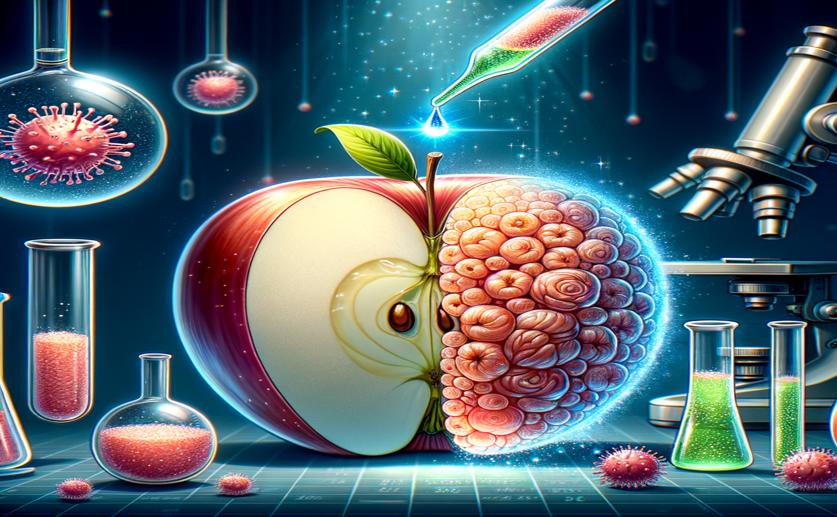
Apple Extract Boosts Skin Cell Growth and Collagen Production in Lab Studies
Jenn Hoskins
14th July, 2024

Image Source: Natural Science News, 2024
Key Findings
- Researchers at Aomori University found that apple pomace extract (APE) boosts the growth of skin cells called fibroblasts
- APE increases the production of hyaluronic acid and type I collagen, which are crucial for skin hydration and strength
- The study suggests APE could be a natural ingredient for anti-aging skincare by promoting skin cell growth and maintaining skin structure
References
Main Study
1) Apple Pomace Extract Induces Cell Proliferation and Increases Type I Collagen and Hyaluronan Production in Human Skin Fibroblasts In Vitro.
Published 13th July, 2024
https://doi.org/10.1007/s11130-024-01210-w
Related Studies
2) Extracellular matrix regulation of fibroblast function: redefining our perspective on skin aging.
3) Ingested hyaluronan moisturizes dry skin.
4) Apple Pomace as Potential Source of Natural Active Compounds.



 16th June, 2024 | Greg Howard
16th June, 2024 | Greg Howard